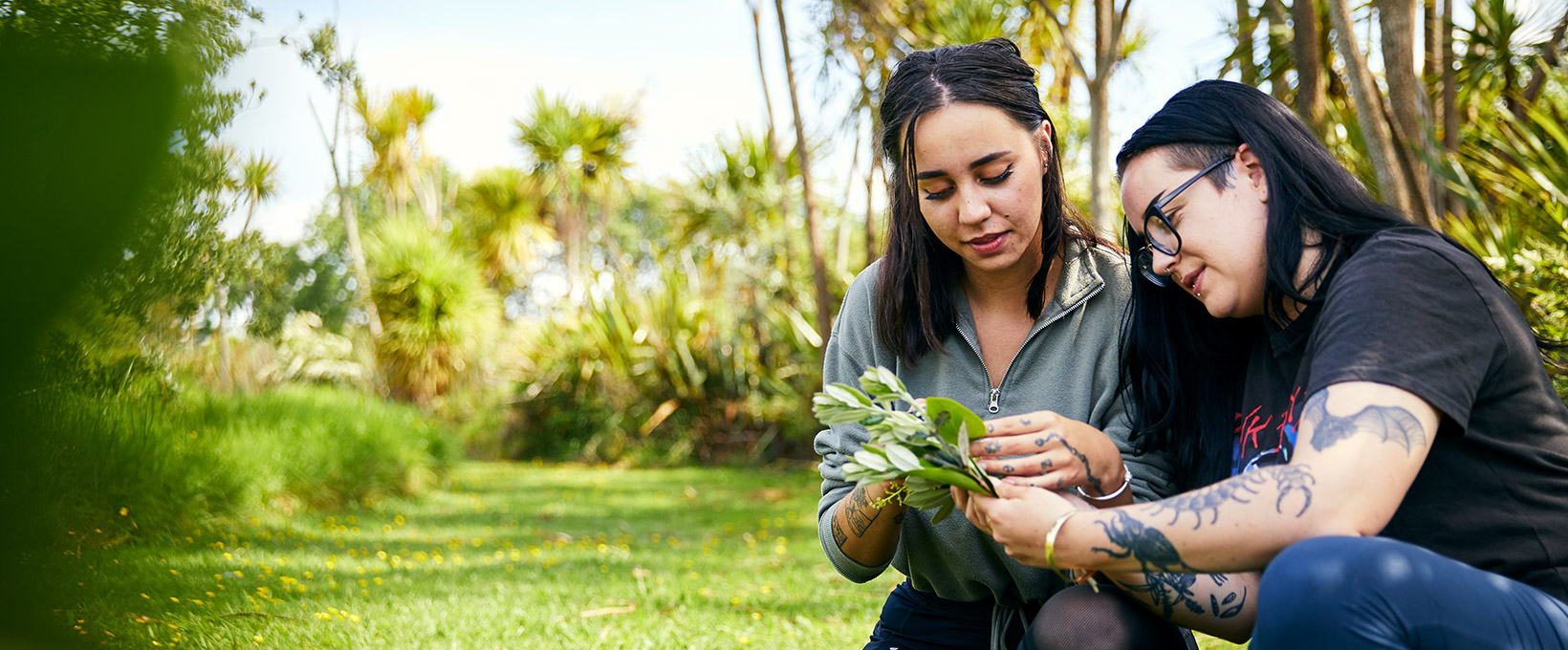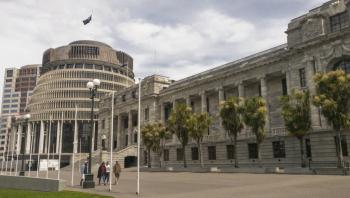Programme overview
Are you ready to take on a new challenge by stepping into a senior-level job? Perhaps you’re interested in postgraduate study but unsure about committing to a full master’s degree.
The Postgraduate Certificate in Applied Science (Biodiversity Management) is a 6-month introductory programme that prepares you for further postgraduate study. It also helps you develop advanced skills and knowledge for more specialist roles in the public sector and local and national government agencies.
Focus on partnership and stakeholder engagement.
Many of the world’s most critical environmental issues require biodiversity professionals who are experts in identifying priority biodiversity areas and developing strategies and tools that support conservation. Globally, this requires a high level of cultural competence, mainly when working with mana whenua (Indigenous people of the land – Māori) and other stakeholders, like policymakers, environmental managers, and landowners.
- Critically evaluate advanced knowledge in applied science including recognised industry methodologies, data analysis and effective problem-solving skills to explore issues arising from the human impact on the environment
- Communicate and collaborate in diverse working environments in applied science to develop and maintain relationships with a range of stakeholders, including government, Māori, and local communities.
- Summarise advanced and new knowledge, insight, and innovation to improve practice in applied science for industry and community stakeholders.
- Engage in analysis, criticism, and problem-solving to advance innovative practices in environmental sustainability in business, government, and non-governmental sectors.
- Apply cross-cultural perspectives that embrace understanding and engagement with indigenous bodies of knowledge, practices, and worldviews with a key focus on Te Ao Māori and Te Tiriti o Waitangi in applied science.
Highlights
- Earn and learn: This programme is a mix of online learning and on-campus block courses, field trips, and online learning, making it an excellent option for biodiversity professionals who are already working and want to start postgraduate study.
- Move your career up a level: With a postgraduate qualification, you’ll acquire higher-level knowledge and develop the necessary skills for your specialisation, strengthening your CV and the likelihood of a higher salary.
- Key focus on Te Ao Māori and Te Tiriti o Waitangi: Put into practice cross-cultural perspectives which embrace understanding and engagement with indigenous bodies of knowledge, practices, and worldviews.
- Access Lab facilities (local and national): Depending on where you choose to complete your compulsory on-campus block courses, you’ll learn in various facilities, including molecular biology, microbiology and GIS labs, Marae, herbaria and invertebrate collections, simulators, and other specialist equipment and machinery.
- Learn from experts across the country: This programme is co-taught by highly qualified and respected scientists, other experts, and industry consultants from around Aotearoa, New Zealand.
- Transition into further postgraduate study: This programme cross-credits towards our Master of Applied Science (Biodiversity Management) and Postgraduate Diploma in Applied Science (Biodiversity Management).
Scholarships and awards
At Unitec, we want to manaaki student success wherever we can, and scholarships is one of the ways we do that. We have scholarships that recognise the achievements and the challenges of dedicating yourself to learning, whether that's in vocational trade, at the undergraduate level, or at Masters degree level and beyond. Check out the scholarships listed below. The filters under Award Types, Characteristics, and Status will help refine your search. If you have questions, please email our Scholarships team or book in with a Scholarships advisor.
Unitec’s learning facilities
Applied Molecular Solutions Lab
If you’re interested in the genetics of animals, plants, and fungi, this lab is fully equipped for DNA extraction and analysis.
Some fascinating research projects include DNA barcoding of possible biological control agents, bioremediation of contaminated soils, and molecular analysis of seabird diets.
GIS Laboratory
Where science meets tech, the GIS Laboratory has 40 workstations with industry-standard ArcGIS and associated software.
Using high-performance Graphics Processing Units on Virtual Device Interfaces with large 24-inch monitors, these computers can run realistic 3D modeling, spatial analysis, image rendering, and other computing-intensive tasks.
The Herbarium
With a collection of 11,500 scientifically preserved plants, fungi, lichens, and seaweeds, the Herbarium is where you'll learn about plant specimen collection and preparation techniques.
The Herbarium supports essential research, including investigations into invasive and native plants and fungi and an active lichen research group’s studies.
There’s also the opportunity to assist with accessioning and curation as a volunteer.
Admission requirements
What you will need to study this programme.
Domestic students
Academic requirements
You must have completed at least one of the following:
- A recognised bachelor’s degree in a relevant discipline with merit (an average grade of B- or higher; Or
- A professional qualification in a relevant discipline recognised as equivalent to merit in a bachelor’s degree or equivalent.
- University Entrance Literacy: 8 credits at Level 2 or above in English or Māori (4 in Reading, 4 in Writing); or
- Evidence of English language proficiency as outlined in the NZQA Rules on the Unitec English Language Requirements for International Students Web-page.
Non Academic requirements
You must have all the following:
- Attained the age of 20 years on or before the first day of the semester in which study for the programme is to commence;
- Provided sufficient evidence of aptitude or appropriate work or other life experience that would indicate a successful outcome in the qualification.
Don’t meet these Academic requirements?
- If you don’t meet the academic criteria, our Bridging Education Programmes can help you qualify. Simply apply online, and we’ll discuss your next steps.
- If you don’t meet the above criteria, special or discretionary admission may apply; your eligibility will be determined at the interview.
For more information, download the programme regulations (PDF 387 KB)
Courses and timetables
For more details on the courses including timetables, please click on the course names below.
| Courses | Credits | Aim |
|---|---|---|
| Partnership and Stakeholder Engagement (NSCI8001TP) | 15.0 credits (0.125 EFTS) | Learners in this course develop the knowledge, skills and cultural competencies to authentically engage with Maori, Moriori, indigenous peoples elsewhere in the world, and other stakeholders. They do this by exploring stakeholders’ cultures and value systems, critically evaluating their own values, creating and using a model for engagement, reflecting on their experiences, and creating an action plan for further professional development in applied science and biodiversity. |



